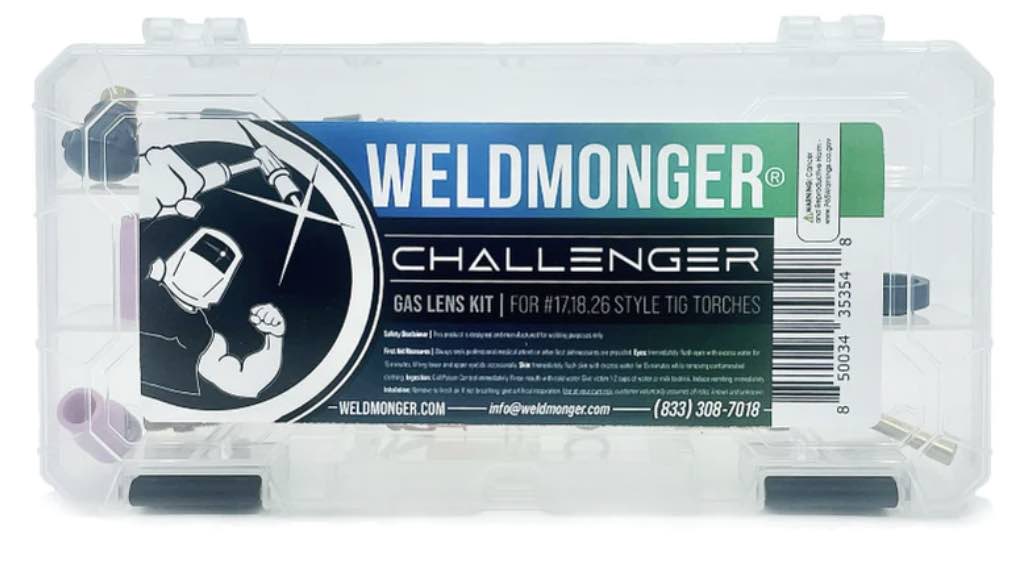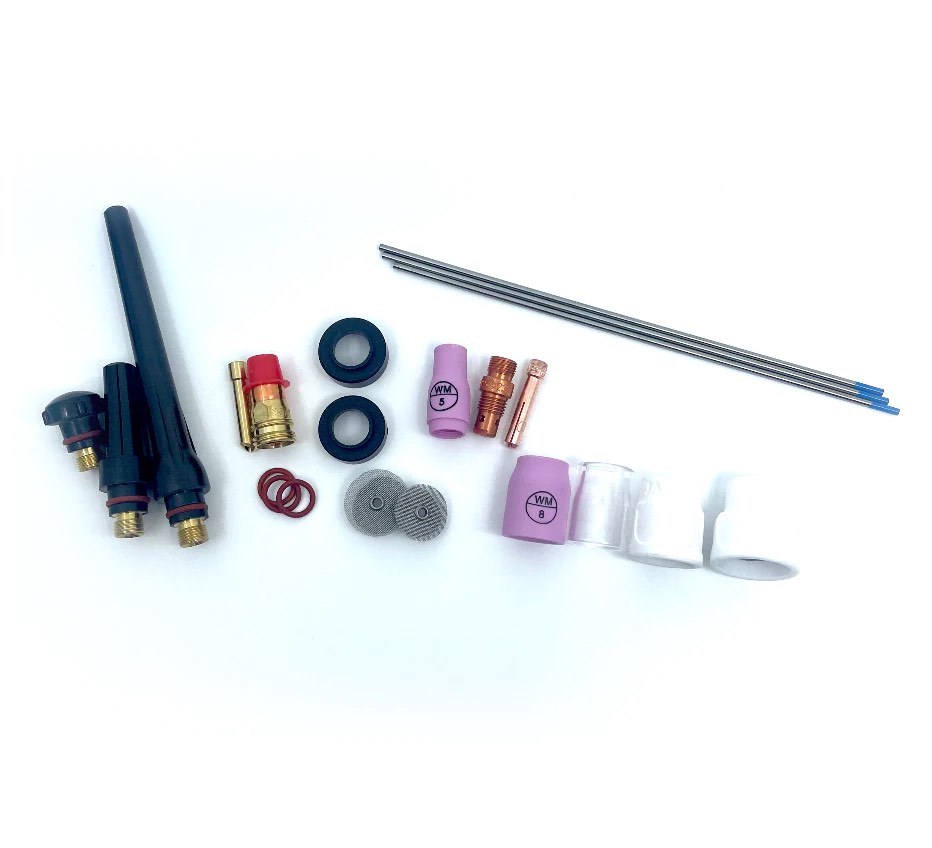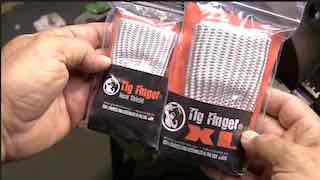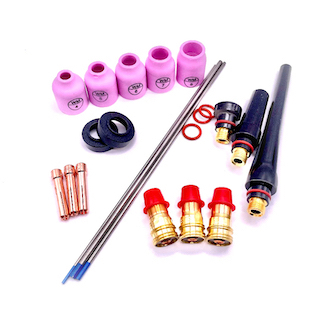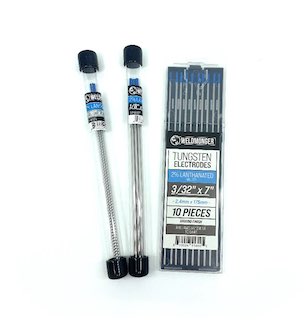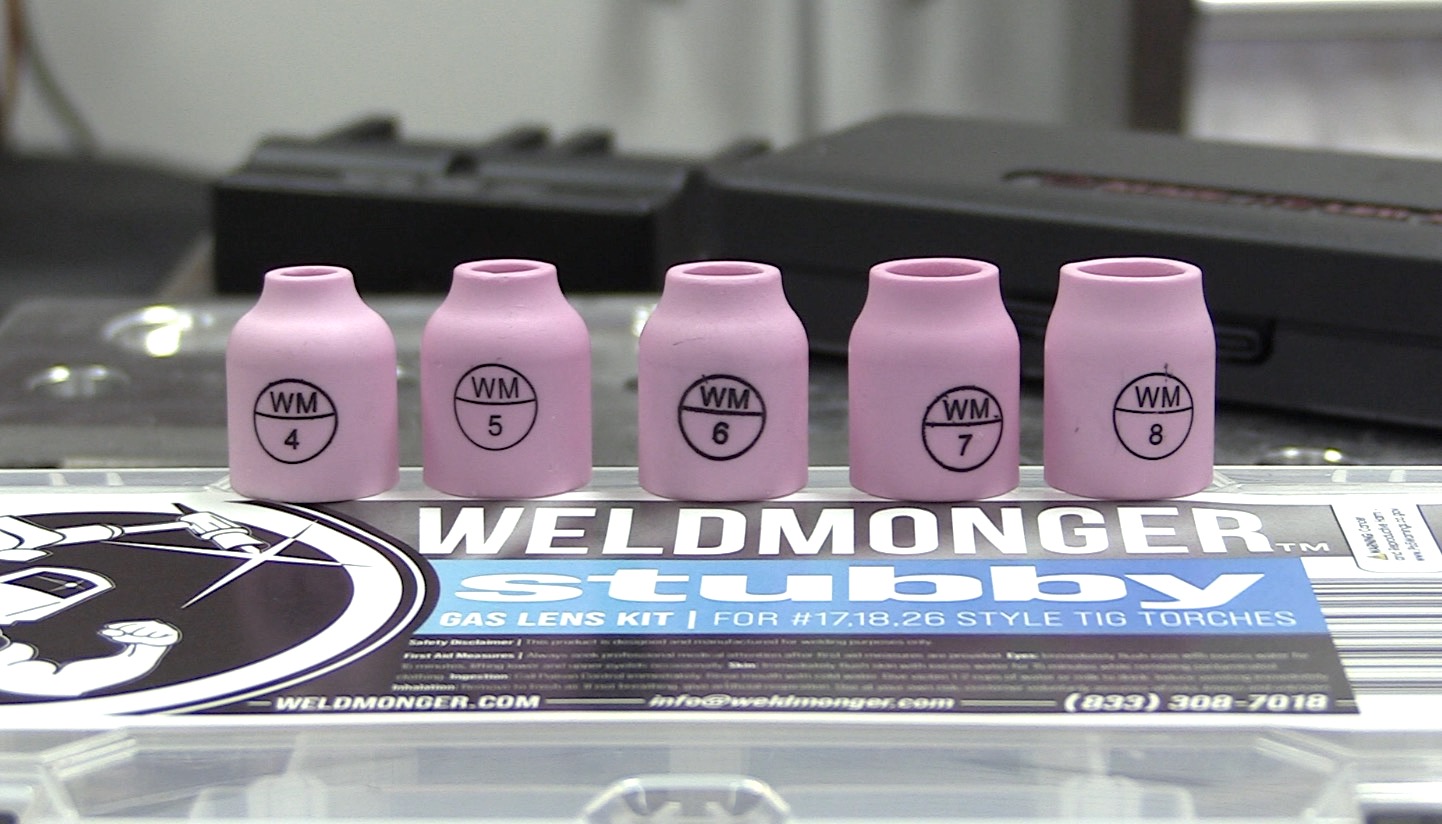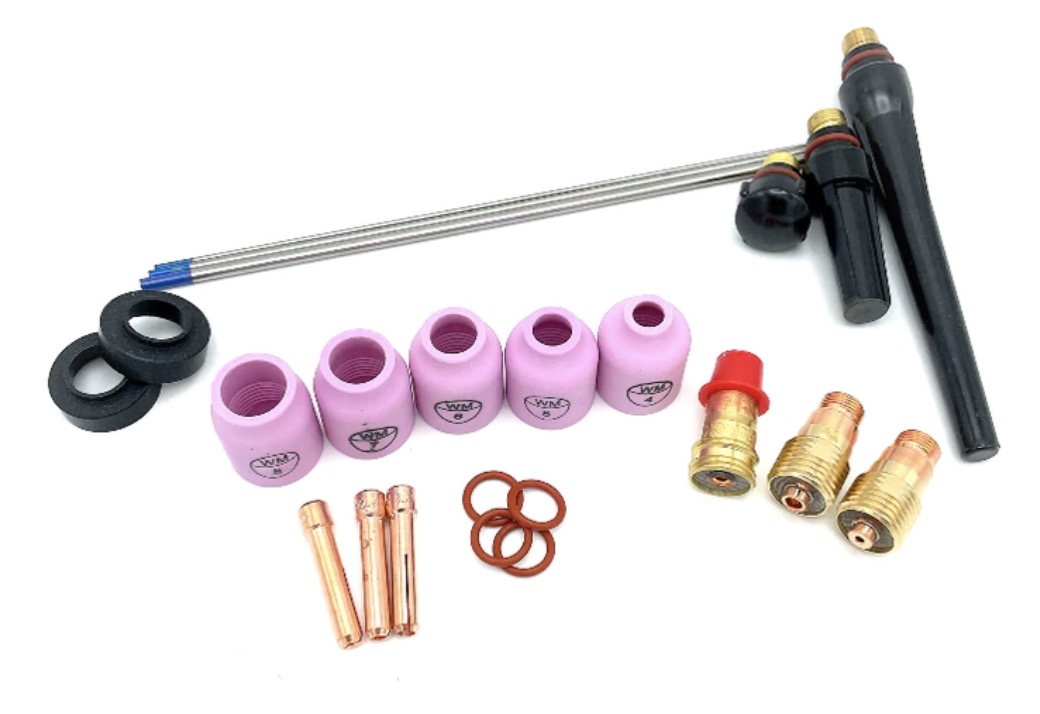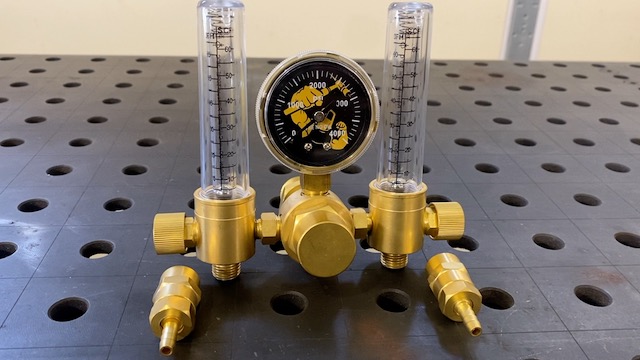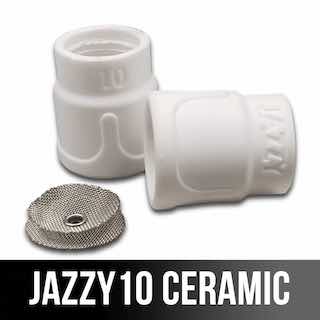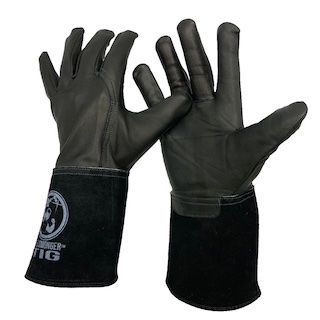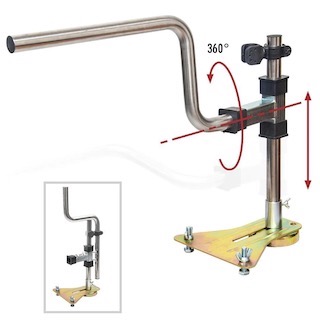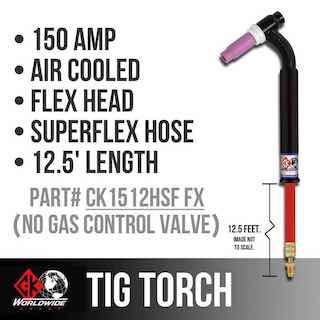Tig Welding Aluminum using Argon/Helium mix
- HOME
- TIG WELDING ALUMINUM
- How to Tig Aluminum
- Tig Welding Aluminum
Hey! Jody here with with another weekly video about TIG welding aluminum.
What I want to show you today is how to get more out of your tig welding machine on thick aluminum...(1/8" 3.2mm) and thicker.
If
you have a 250 amp or lower tig welder, you know that when you tackle a
thick piece of aluminum, you either have to preheat the part, or wait a
while to establish a puddle.
...and it can be a slow go.
see more tig welding aluminum videos or go to the main TIG welding page
...Introducing the New WeldMonger Challenger TIG kit that includes the most frequently used Cups.
watch more videos on Tig welding aluminum
visit the weldmonger store
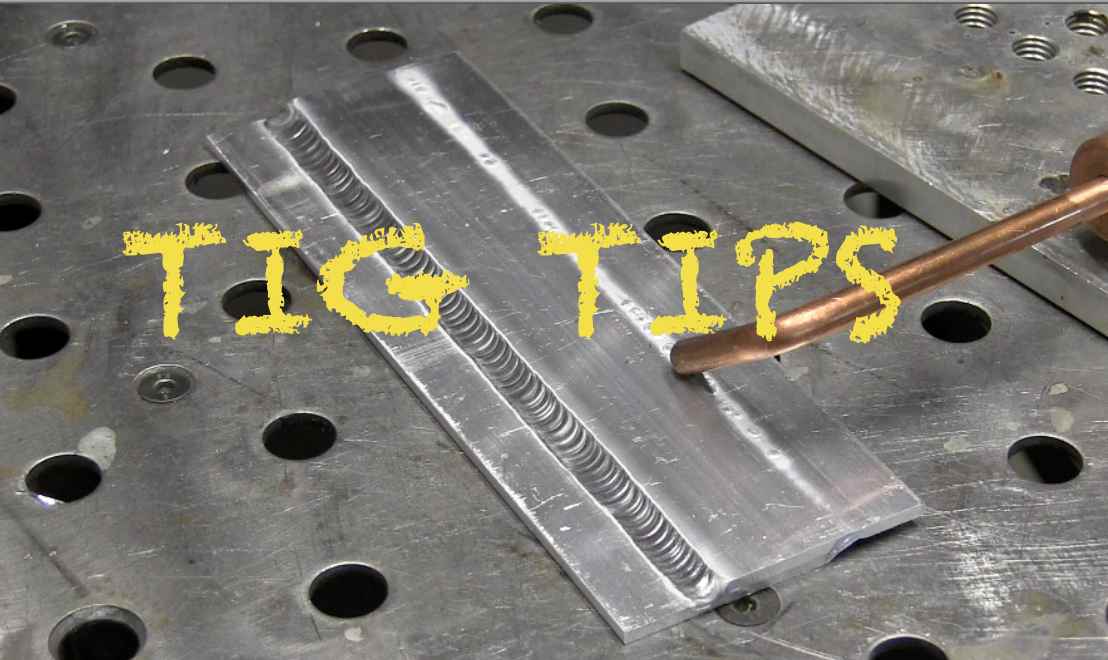
Also,
another problem is that if you have an air cooled tig torch like a 17
or 26, all that waiting around waiting for the puddle to get going can
really heat that torch up to the point where its hard to hold on.
So what can you do?
Buy a bigger welder?
Does that really make sense if you only weld thick aluminum a few times a year?
What might be a better answer to the problem is to add some helium to the mix.
Helium makes a big difference on thicker aluminum….in fact, I like to use a helium mix on 1/8" (3.2mm) and thicker.
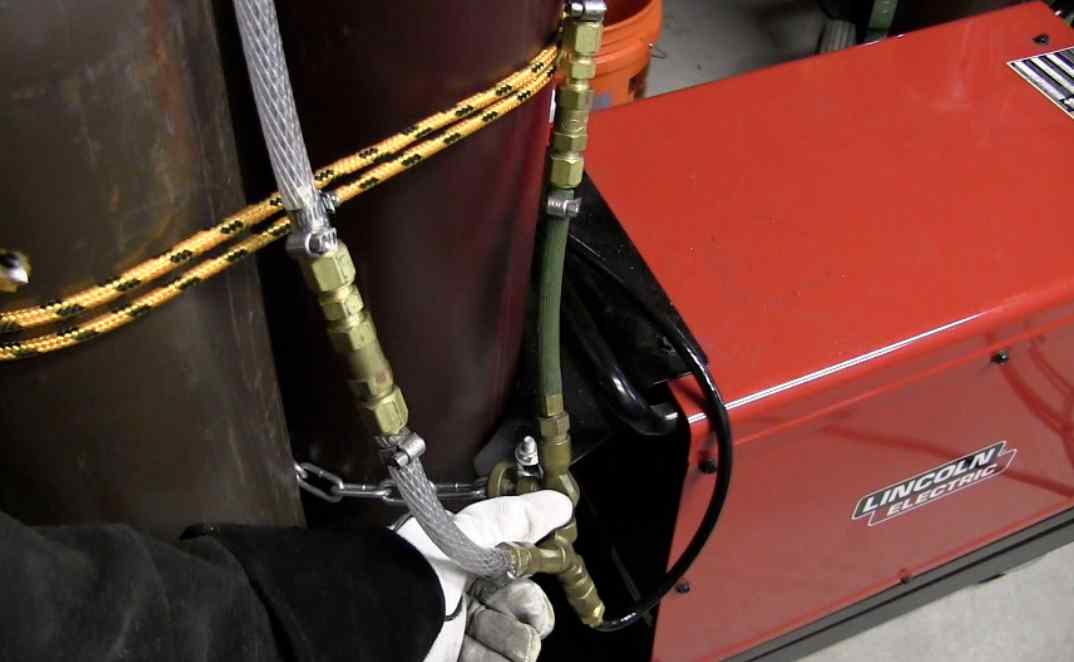
keep scrolling down for more tips for Tig welding aluminum...
But what about the Helium shortage?
Its true that helium is more expensive and harder to get that it used to be. But in my area around Atlanta GA, its still not that hard to get.
The price has gone way up, but since I only have to refill once every one or 2 years, its way worth the price for me.
Do you need an expensive gas mixer?
Well, if you are welding per a welding code and by a written weld procedure, you might need to use premixed gas or use a calibrated mixer
...but if not, then a simple "Y" fitting works very well.
I have a western 411 Y fitting with valves and I even use check valves but I have seen this done plenty of times without check valves.
Even though it took lots of fittings, I hooked up Check valves to prevent any mixing of the 2 gases in the tanks…just because stuff happens sometimes.
Another reason that I mix my own gas using a Y is that I sometimes like to have pure helium around for DCEN tig welding of thick aluminum ( thats a topic for another video).
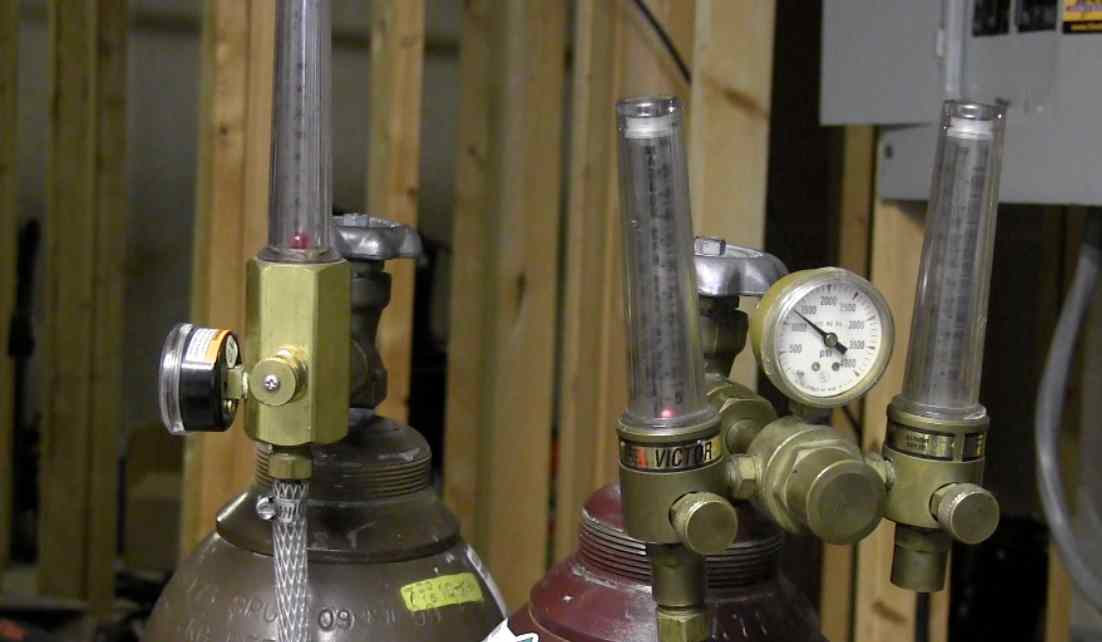
Ok ...so here is the setup for this video…
I am using a Lincoln Tig 175. Its a simple transformer style tig welder with no adjustments for AC frequency or waveforms.
I set the machine to 100 amps.
using a 1/8" (3.2mm) 2% lanthanated electrode and a #5 gas lens cup, I only needed 10 cfh of pure argon.
The first lap joint welded at 100 amps was barely hot enough and took 1:40 to complete the 8" (20cm) long joint .
That is a very slow travel speed. I figured travel speed to be about 4.8 inches per minute.
With
a bit of helium mixed in using the Y setup, the entire joint took 57
seconds. For a travel speed of around 8 inches per minute.
And
you will notice in the video, that it took very little gas to do that. I
barely floated the flowmeter balls to around 5cfh each. Thats a
benefit of using a #5 gas lens cup.
Here is the thing….Even
thought helium adds heat and increases the voltage across the tig arc,
it can actually help to lower the total heat input.
How can that be?
Well, because the formula for calculating heat input goes like this…
(voltage times amperage) divided by travel speed.
or…
Voltage X Amperage
---------------------------
Travel speed
So while voltage and amperage increase heat input, increased travel speed lowers heat input.
All I know is that aluminum 1/8" (3.2mm) and thicker, welds better and faster with a helium mix.
You
can make things simpler by getting a premixed cylinder of 50/50 or even
80/20 helium/argon mix. But I just use a Y so that I have pure helium
around also.


